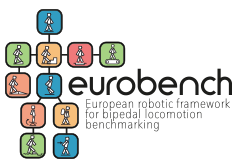On November 30th at 5 p.m., our FSTP-2 Open Call closed after 3 months and 6 cut off dates. We have received 53 proposals from individual or consortium applicants.
The EUROBENCH FSTP-2 Open Call was created with the aim of validating the facilities and the unified software that EUROBENCH is creating with the contribution of 17 teams that were elected in our FSTP-1 Open Call. These facilities and unified software will together become the first benchmarking framework for bipedal robotics in Europe. The teams are now in the implementation phase, integrating all the testbenches in their final location, to allow beneficiaries of this FSTP-2 Open Call start their projects in April 2021.
In this FSTP-2 Open Call, 51 different entities have requested funding to test their robotic technologies in the EUROBENCH benchmarking framework and contribute to its validation. These institutions are from 13 different countries. Considering the technologies to be tested, 72,59% of the proposals are related to exoskeletons, 21,49% to humanoids, 3,72% to protheses and 2,20% to non-bipedal systems.

In the FSTP-2 Open Call there were three options to participate:
- Almost 74,54% of proposals were submitted to Option 1, what means, testing experiments to be conducted in one of the two EUROBENCH facilities: the one dedicated to humanoids in Genoa (Italy), or at the one dedicated to Wearable Robots in Madrid (Spain). The goal of the experiments should be to assess the performance of a real robotic system or control algorithm by using the EUROBENCH testbeds and software.
- 25,04% of participants have requested to use our unified software to make remote experiments through the Option 2 scheme. These projects will develop testing experiments to be conducted in their own laboratory. The goal of the experiments should be to assess the performance of a real robotic system by using the EUROBENCH software.
- Less than 1% of the proposals have requested the Option 3, consisting on a retrospective data analysis, in which the beneficiaries will benefit of the EUROBENCH Software to process retrospective data on robot and/or humans. The goal should be assessing the performance of the robotic system and/or producing high-quality performance reference data from healthy or impaired individuals. All the collected and processed data should be uploaded and integrated in the EUROBENCH Database.
